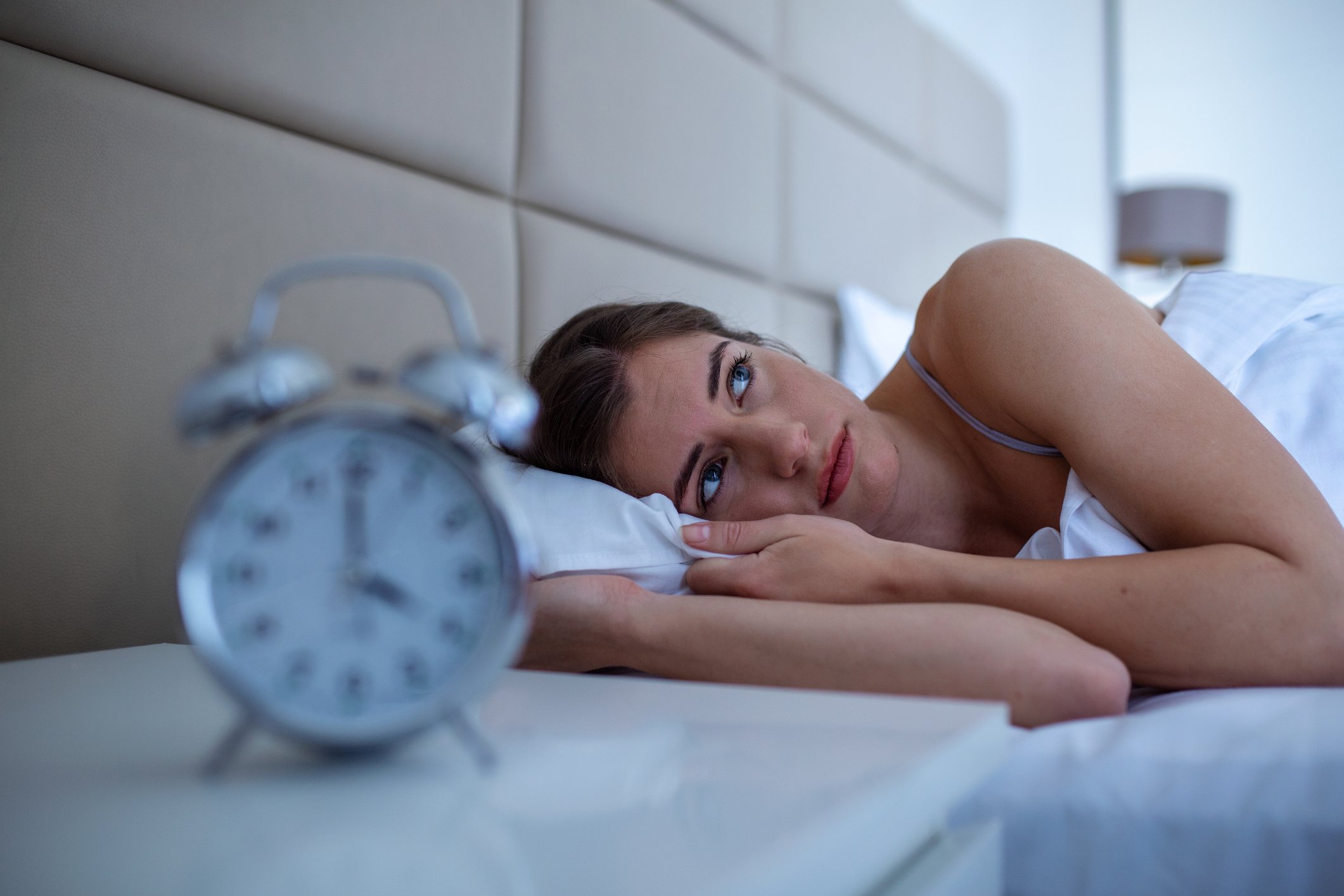Anxiety and Low Sex Drive in Women: Breaking the Cycle and Reclaiming Your Intimacy
It's an all-too-familiar feeling for many women. Despite your best efforts, the thought of being intimate with a partner brings on feelings of fear and anxiety—not pleasure or anticipation. You may have tried to ignore it and push through the discomfort, but your lack of interest in sex persists.
Know that you're not alone; countless women struggle with low sex drive due to anxiety—but there are solutions! In this blog post, we'll explore the cycle between anxiety and low libido in more detail, providing helpful tips for breaking free from the struggles that can keep you from reclaiming intimacy with yourself and/or a partner.
Anxiety and Low Sex Drive: Understanding it Effects on Women
Anxiety, a feeling of unease such as worry or fear, often profoundly affects various aspects of life, including a woman's sex drive. It's a complex cycle where anxiety can lead to a reduced interest in sex, which can increase anxiety about performance and satisfaction, further exacerbating the low libido.
Anxiety can stem from various sources, including work, relationship issues, health concerns, or past trauma. It can manifest mentally and physically, causing symptoms ranging from a racing mind to a racing heart. When worries and fears consume your mind or physical symptoms cause you tension and discomfort, finding pleasure in the bedroom is nearly impossible.
Women with anxiety often struggle to get in the mood, unwind, and fully enjoy intimate encounters. The result? A plummeting interest in sex and an inability to find pleasure in the most intimate experiences.
Understanding the link between anxiety and low sex drive is the first step to breaking the cycle and regaining the enjoyment and fulfillment of intimacy.
Is Anxiety Affecting Your Sex Drive? Understanding the Connection and Finding Solutions
Anxiety can have a powerful impact on a woman's libido, affecting not only her thoughts and emotions but also her physical well-being and hormonal balance. It can even manifest in behaviors that prevent her from fully enjoying intimate moments. This worrisome cycle of avoidance and disconnection can hinder true arousal and pleasure.
To regain control of your libido, it's important to uncover the ways in which anxiety can be linked to low sex drive and explore possible solutions. Let's delve into each aspect and find effective strategies to overcome this aggravating obstacle.
Physical Symptoms: Tension and Muscle Tightness
Imagine trying to enjoy a massage while feeling tense and anxious. The muscles are too tight to relax, making it challenging to appreciate the sensations fully.
When a woman experiences anxiety, her body goes into a state of heightened alertness and stress. This can increase muscle tension and tightness throughout her body, including the pelvic area. As a result, she may find it uncomfortable or difficult to relax during sexual activity, making it harder to experience pleasure and arousal.
Hormonal Changes: Cortisol and Sex Hormones
Anxiety triggers the release of stress hormones like cortisol, which can interfere with the delicate balance of sex hormones in a woman's body. This hormonal disruption may decrease her libido and impact her sexual desire, making it more challenging to engage in intimate experiences.
Additionally, prolonged periods of heightened stress can contribute to increased muscle tension and fatigue, further affecting the physical and emotional aspects of sexual well-being.
Fatigue and Exhaustion
Anxiety can be mentally and emotionally draining, causing persistent fatigue and exhaustion. When a woman is constantly battling anxiety, she may not have the energy or motivation to engage in sexual activities, leading to a decreased interest in sex.
Negative Thought Patterns: Self-Doubt and Body Image
When it comes to anxiety and low sex drive, there is often an underlying issue of self-confidence, along with negative patterns of thought and self-doubt, which can extend to body image concerns. Women who suffer from anxiety may be more likely to doubt their sexual performance, not feel comfortable in their bodies, or fear rejection. This lack of self-confidence can further contribute to feelings of unease that dampen the desire for sexual experiences and make even the thought of engaging in sex daunting.
Intimacy and Relationship Strain
Anxiety can significantly impact relationships by causing communication difficulties and emotional distance. When a woman experiences stress within her relationship, it can affect her desire for intimacy and sexual connection with her partner. This can manifest as a decreased interest in physical affection and a struggle to maintain emotional closeness, further straining the relationship dynamics.
Distracted Mind: Difficulty Focusing on Pleasure
Imagine trying to savor a delicious meal while constantly bombarded with distracting thoughts. It's tough to enjoy the experience when the mind is elsewhere. Anxiety often leads to an overactive mind, making it challenging to be fully present during sexual experiences. A woman may struggle to focus on pleasure and arousal when her mind is preoccupied with worries and intrusive thoughts.
Performance Anxiety: Fear of Failure
Struggling with anxiety can lead to performance-based fear. A woman may feel anxious about her sexual performance or feel she won't be able to please her partner, leading to decreased libido. This type of anxiety can prevent her from feeling relaxed and enjoying the experience, further decreasing her interest in sex.
Breaking Free from Anxiety-Induced Low Sex Drive
Low sex drive caused by anxiety doesn't have to be a constant struggle. There are several ways to help overcome anxiety-induced low sex drive.
Make time for non-sexual intimacy. If you have a romantic or intimate partner, spending quality time together without the expectation of sex can help to foster connection and closeness. This builds trust and strengthens your bond, creating a space where pleasure can be more easily explored.
Create a safe, comfortable atmosphere. Before engaging in sexual activities, it's important to ensure that the environment feels secure and relaxed—free of judgment or pressure. This is where nurturing emotional intimacy comes into play. Open conversations that foster trust and understanding will allow both partners to be more open about their feelings, needs, boundaries, fears, and desires, offering deeper intimacy and satisfaction inside and outside the bedroom.
Practice relaxation techniques. Taking time out of the day for relaxation can help reduce anxiety. Taking a few deep breaths, repeating positive mantras, or engaging in physical activities can all be powerful tools for managing intense emotions and calming the mind.
Be mindful of physical sensations. Anxiety can cause women to focus solely on whatever is happening in their minds rather than pleasure from physical sensations. When engaging in sexual activities, try to be aware of the physical sensations and pleasures that come with them.
Embrace self-compassion. It's vital to remember the importance of self-compassion and self-care when addressing anxiety and low sex drive. Treat yourself with kindness to create the space to heal, understand your discomforts and challenges, and learn to express your needs and wants.
Seek professional support. If anxiety is preventing you from experiencing the pleasures of life, seeking out therapy could be an effective way to work through these issues. Talking with someone who understands and can provide guidance and support is invaluable for overcoming anxiety-induced low sex drive.
With these tips in mind, women can begin breaking free from anxiety-induced low sex drive and experiencing the pleasure of sexual experiences.
Moving Forward: Taking Control and Overcoming Anxiety-Induced Low Sex Drive
You can start taking steps toward reclaiming your libido by recognizing how anxiety affects you and creating a plan for addressing those feelings. This may involve working with a therapist or other professional who can guide you through various coping mechanisms to help you better manage your anxiety and low sex drive, and return to a place of sexual satisfaction.
It is also important to recognize that taking control of your sex life does not have to mean putting yourself in a vulnerable position. Experimenting with different scenarios and activities can help you to find the kind of sex life that feels comfortable and pleasurable for you. This could include exploring your body, engaging in practice or intimate sessions not involving intercourse, or playing around with role-play scenarios.
By controlling your anxiety and sex life, you can find your way back to a place of satisfaction, connection, and pleasure. There may be some bumps along the way, but you can overcome these challenges with openness and understanding.
Seeking Help and Support
Don't forget that when it comes to sex and intimacy, there is no need for shame or judgment - only open communication and understanding. And if you are ever feeling overwhelmed or unclear on how to move forward, don’t hesitate to reach out for professional help.
A therapist can provide a safe and non-judgmental space to explore your anxieties and sexuality while offering new strategies for managing your anxiety and improving your sex life. With the right support, overcoming the fear of intimacy and finding joy in connecting with ourselves and those we love is possible.
If your anxiety or lack of desire for intimacy impacts your quality of life, please don't hesitate to seek the help and support you need. With the right strategies and resources, you can manage anxiety levels and reclaim the intimate life you deserve.
At Sit With Kelly Therapy, I'm here to provide support and guidance as you overcome the anxiety blocking your desire for connection. Together, we can work towards creating a safe space where you can explore your anxieties and take control of your sex drive.
Remember: this post is for informational purposes only and may not be the best fit for you and your personal situation. It shall not be construed as legal, financial, or medical advice. The information and education provided here is not intended or implied to supplement or replace professional advice of your own attorney, accountant, physician, or financial advisor. Always check with your own physician, attorney, financial advisor, accountant, or other business or medical professional before trying or implementing any information read here.


